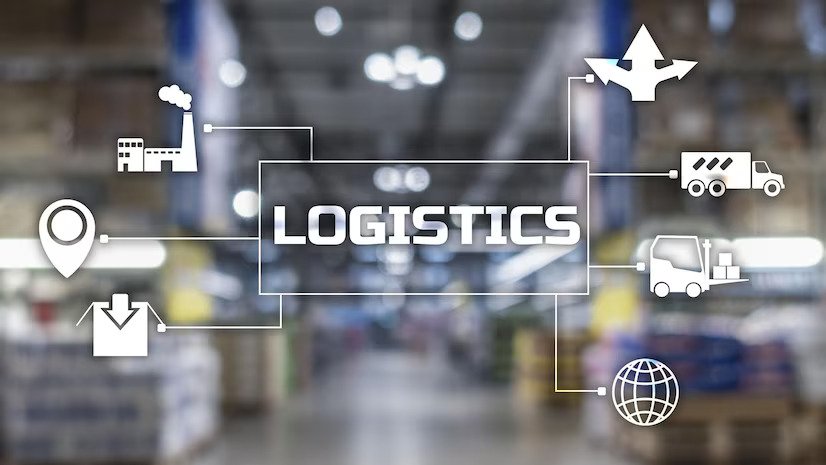How The Logistics Industry Propels The Embrace Of E-Commerce
4 Mins Read
Published on: 11 August 2023
Last Updated on: 11 February 2025

toc impalement
The fast-growing trend of e-commerce, a digital shopping phenomenon, has revolutionized the way people shop and do business.
The logistics industry plays a very important role behind the scenes, thus, driving the embrace of e-commerce. In this blog, we will discuss the cooperative relationship between logistics and e-commerce. We will further explore and highlight how industrial storage equipment and warehouse racking are essential components that enable the seamless and efficient operation of e-commerce businesses.
The E-commerce Boom: A Catalyst For Logistics Advancements
The e-commerce boom has reshaped consumer behavior. Now millions of people worldwide opt for the convenience of online shopping. The demand for innovative and efficient logistics solutions has skyrocketed with the steep growth of e-commerce. The expectations of customers for fast and reliable deliveries are growing faster. To meet these expectations, the logistics industry has been compelled to undergo significant advancements.
Streamlining Warehousing With Industrial Storage Equipment
To ensure successful e-commerce operations, efficient warehousing is of prime significance. To streamline these warehousing processes, Industrial Storage Equipment, such as racks, shelves, and material handling systems, are utilized. These are the only solutions that enable businesses to optimize their storage space. It results in easier management and retrieval of inventory effectively.
Warehouse racking systems are specially designed to maximize storage capacity. With the increase in vertical space, businesses can store a larger volume of products without expanding their physical footprint. This not only helps e-commerce companies reduce operational costs but also manage their inventory more efficiently, making the entire logistics process more sustainable.
Meeting the Demands of Last-Mile Delivery

Last-mile delivery is the final stage of the delivery process. It is one of the most crucial aspects of e-commerce logistics. Customers expect instant deliveries. To meet these expectations seamless coordination between warehousing, transportation, and delivery teams is required.
to streamline the picking and packing process, and for ensuring faster order fulfillment, Industrial storage equipment can be used. to ensure that products are readily available for dispatching, efficient inventory management should be taken care of. To reduce delivery time and enhance customer satisfaction, last-mile delivery teams should be able to quickly locate and retrieve packages and this can be done by implementing optimized storage solutions.
Technology Integration For Supply Chain Visibility
In this digitally driven era, technology is of vital role to enhance supply chain visibility. E-commerce businesses are adopting the integration of warehouse management systems (WMS) and transportation management systems (TMS). This can help them monitor and manage their logistics operations more effectively.
Sensors and RFID tags can be used to equip warehouse racking systems. This ensures real-time data on inventory levels and product movements. With proper implementation of this data integration businesses can make data-driven decisions, optimize stock levels, and improve overall efficiency.
Furthermore, to predict demand patterns and adjust inventory levels accordingly, e-commerce companies can use advanced data analytics and machine learning algorithms. By adopting such technology-driven methodologies and approaches, logistics companies can offer faster delivery times and align with the dynamic demands of the e-commerce market.
Scaling Up With Flexible Logistics Solutions
The e-commerce industry is known for its fluctuating demands and seasonal spikes. When shopping is at its peak in seasons or special promotions, logistics companies should rapidly scale up their operations to align with needs and cater to the increased order volumes efficiently and effectively.
To adapt to changing demands, flexibility can be gained by using efficient industrial storage equipment, such as versatile warehouse racking systems. Businesses sometimes need to reconfigure their warehouse layouts quickly to accommodate different product sizes and quantities. This can be achieved by using adjustable racks and shelving units, as well as specialized solutions like STEELSTACK or Sheet Storage Solution, which can provide organized and space-efficient metal storage for bulky materials. These systems help maximize warehouse capacity while ensuring easy access to inventory. Similarly, modular shelving units can offer scalability, allowing businesses to adjust their storage structures as needed.
Additionally, by adopting automated material handling equipment, e-commerce businesses can utilize their warehouse processes further to their specific needs. To streamline order fulfillment, reduce lead times, and enhance overall productivity automation solutions are another important aspect that should be taken care of.
Conclusion
Behind this widely accepted e-commerce revolution, the logistics industry is the linchpin. It enables the seamless embrace of digital shopping worldwide. With the fast-growing trends of e-commerce, the demand for efficient logistics solutions has been boosted. And this demand has spurred significant advancements in industrial storage equipment.
To cater to the dynamic demands of the e-commerce market, logistics companies must ensure streamlined warehousing, optimized last-mile delivery, and technology integration. As technology continuously evolves day by day, logistics will play an increasingly critical role in shaping the future of e-commerce. Faster deliveries, enhanced supply chain visibility, and more scalable solutions are some relevant aspects that will be enhanced many fold.
To survive in the ever-evolving e-commerce landscape with a significant and competitive lead, businesses must consider investing in advanced industrial storage equipment, such as warehouse racking systems. These are significant factors that can empower logistics companies to meet customer expectations— to get fast and reliable deliveries. This can fuel further growth and innovation in the e-commerce industry.
Read Also:


















Comments Are Closed For This Article